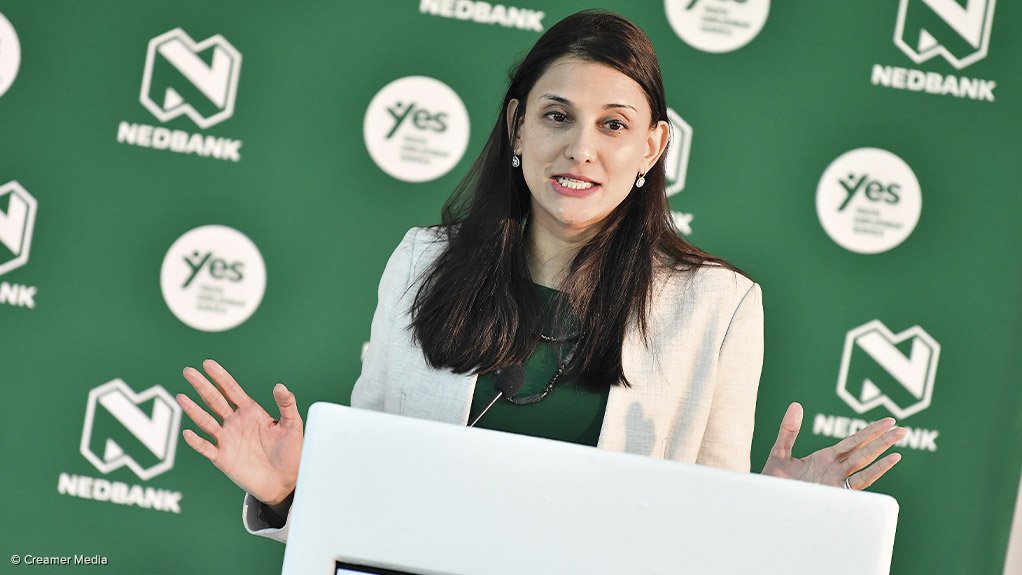Foreign direct investment (FDI) is critical to the development of the South African economy and some innovative thinking by the Department of Trade and Industry (DTI) has turned recently gazetted amendments regarding the Youth Employment Service (YES) into an additional arrow in the DTI’s quiver on a recent roadshow to attract FDI from the European Union.
The YES earlier this week hosted a discussion on attracting FDI and to update shareholders on its activities.
Former Investec CEO and YES co-chairperson Stephen Koseff said in a press release before the event that South Africa has a well-developed financial system and offers foreign investors an attractive access point to the African economy.
“For a long time, we were a favoured destination for multinational companies looking for a springboard into the rest of Africa. However, stagnant economic growth, broad-based black economic empowerment (BBBEE) regulations and other concerns such as visas, have played their part in discouraging foreign investment over the last couple of years,” he added.
In this regard, YES helps foreign investors deal with some of the more difficult aspects, such as ownership and becoming BBBEE compliant.
“Multinationals can invest in creating much-needed youth employment opportunities, while simultaneously raising their BBBEE scorecard,” YES said in a statement issued to Engineering News Online.
“BBBEE legislation is sometimes a challenge for multinationals coming into South Africa, particularly when it comes to ownership and scorecard performance. The good news is that recent amendments [to] the YES BBBEE gazette and practice note are changing this.
“DTI and YES are cognisant of these challenges and encourage multinational companies to see YES as an opportunity to improve their BBBEE status levels by either one or two levels by implementing YES in their business and assisting with youth employability,” said YES CEO Dr Tashmia Ismail-Saville.
She added that the solution was already being applied by big business. To date, six businesses – three of which are multinationals – have improved their BBBEE rankings using this tool. A further four are on track for similar scorecard improvements.
Meanwhile, Ismail-Saville pointed out that South Africa is facing increasing competition from countries including Kenya, Rwanda and Ghana, which are all jostling for their share of FDI. Additionally, Rand Merchant Bank in its ‘2019 Where to Invest in Africa’ report highlighted how some of the smaller countries such as Guinea and Côte d'Ivoire are attracting FDI through pro-business policies.
YES noted in its statement that the United Nations Conference on Trade and Development’s ‘2018 World Investment Report’ had found that FDI flows into Africa were down by 21% from 2016 levels.
This has primarily impacted on commodity exporters, but South Africa recorded a significant decline, owing to perceived political uncertainty.
DTI acting investment head Yunus Hoosen commented that, on the DTI’s investment roadshow to Europe, the YES initiative was welcomed and supported by multinationals in Switzerland, Germany and France.
Companies such as Volkswagen and Siemens recognised YES and want to partner with the programme, he confirmed.
Other YES partners include Google, which provided both financial and technical support when the initiative won the Google Impact Challenge. YES also has a formal partnership with social media platform LinkedIn, assisting YES in identifying the skills that are in demand in the South African economy and how YES youth can be positioned for the future.
Further, YES has received grant funding from Microsoft to expand its digital education initiatives through its hubs.
YES is planning to launch eight hubs before the end of the year, with the ultimate goal of having 100 hubs across South Africa. Its first, and thus far only, hub was launched in Tembisa, in November 2018, and has contributed to YES creating 18 000 work experiences since its inception in March 2018.
To help facilitate the hubs rollout, the World Bank has agreed to provide real-world data analytics and insights, assessing YES’s existing hub infrastructure. The World Bank partnership allows YES to access local and international funding through grants, development financing and impact investment channels.
“Government often comes in for a lot of criticism for not taking steps to improve the investment climate in South Africa, but here is a clear example of decisive decision-making which is not only playing an active role in creating a more flexible environment for multinationals and improving FDI flows into the country, but also facilitating this investment into a priority area – youth employment,” said Ismail-Saville.
EMAIL THIS ARTICLE SAVE THIS ARTICLE ARTICLE ENQUIRY
To subscribe email subscriptions@creamermedia.co.za or click here
To advertise email advertising@creamermedia.co.za or click here











